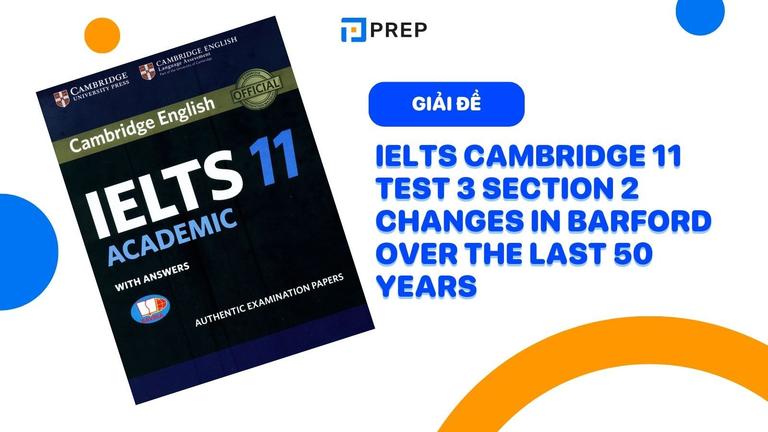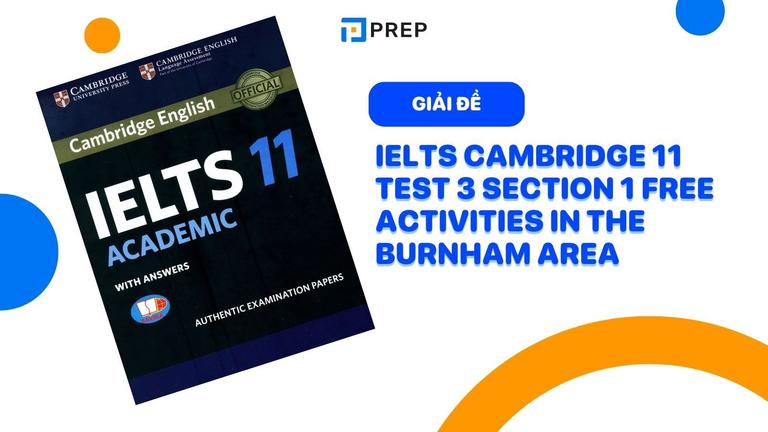Đề bài, bài mẫu IELTS Writing Task 2 chủ đề: Animal protection
Một số người nói rằng chúng ta đã dành quá nhiều thời gian cũng như nguồn lực cho việc bảo vệ động vật và chim hoang dã. Theo bạn, ý kiến này có hợp lý hay không? Vậy, khi chủ đề này xuất hiện trong đề thi IELTS Writing Task 2 Animal protection thì bạn sẽ xử lý như nào để ẵm trọn band điểm cao? Chia sẻ với PREP ngay nhé. Và đừng quên tham khảo bài mẫu IELTS Writing Task 2 Animal protection band 8.0+ dưới đây!
[caption id="attachment_44832" align="aligncenter" width="500"] Bài mẫu IELTS Writing Task 2 Animal protection band 8.0+[/caption]
Bài mẫu IELTS Writing Task 2 Animal protection band 8.0+[/caption]
I. Đề bài IELTS Writing Task 2 Animal protection
Đề bài IELTS Writing Task 2 Animal protection: Some people say that too much time and resources are spent on the protection of wild animals and birds. To what extent do you agree or disagree?
[caption id="attachment_44833" align="aligncenter" width="1640"] Đề bài IELTS Writing Task 2 Animal protection[/caption]
Đề bài IELTS Writing Task 2 Animal protection[/caption]
II. Gợi ý giải đề & dàn bài IELTS Writing Task 2 Animal protection
Để hiểu hơn về bài mẫu IELTS Writing Task 2 Animal protection bên dưới, hãy cùng PREP tham khảo phần phân tích đề thi và dàn bài chi tiết bạn nhé!
1. Phân tích đề thi
IELTS Writing Task 2 Animal protection là đề bài có độ khó tương đối. Ngoại trừ việc đề bài có thể gây khó khăn cho thí sinh khi tìm ý tưởng liên quan đến bảo vệ động vật, thì không có lưu ý nào đặc biệt.
2. Dàn bài chi tiết
| Introduction |
|
| Why too much time and resources have been spent on the protection of wild animals and birds |
|
| Why the current spending of time and resources on the protection of wild animals and birds is not too much |
|
| Conclusion & Opinion |
|
III. Bài mẫu IELTS Writing Task 2 Animal protection
Bài mẫu IELTS Writing Task 2 Animal protection band 8.0+ dưới đây được biên soạn kỹ lưỡng bởi giáo viên hạng A tại PREP. Tham khảo ngay để ôn luyện thi IELTS Writing hiệu quả tại nhà bạn nhé. Đừng quên lưu ngay một số từ vựng ăn điểm thuộc chủ đề vào sổ tay và áp dụng khi bạn luyện đề!
The protection of wild animals and birds is an important part of preserving the natural environment. However, people are divided over whether more resources than necessary have been allocated to this cause. In this debate, I am against the belief that wildlife protection has received too much attention and investment.
Some might argue that enough has already been spent safeguarding wild creatures. They claim that pursuing this goal does not immediately provide economic benefits or improve people’s welfare. Therefore, any more time or resources allocated to conservation is likely to be a waste, and it is better to divert funds to education or healthcare investments, which directly benefit humans. In addition, there is a concern that more spending than currently to protect wildlife is unwarranted. As a matter of fact, much time and resources have been expended for this purpose, but some consider the effectiveness unsatisfactory. The illegal trade of wild animal parts such as horns and gallbladder, for instance, is ongoing and difficult to put to an end.
However, I believe the wild animals and birds deserve every penny to ensure their survival. This is because protecting them from extinction involves not only preserving existing individuals, but also enabling them to procreate. In the world, fewer than 3,000 Indian Tigers are left, yet each species requires 10,000 individuals to proliferate; these creatures are, therefore, in dire need of help in terms of breeding. Furthermore, safeguarding wildlife does positively impact the economy, as evidenced by safari parks. Wild animals live safely and freely in these locations, while visitors pay to observe them as a form of ecotourism. This, consequently, produces an additional source of income for local businesses. Taking these points into consideration, it can be clearly seen that wildlife protection is a multifaceted investment.
In conclusion, the various benefits of conserving wild animals and birds prove its worth, so spending on it is hardly ever too much. For the sake of biodiversity and ecological balance, it is essential that wildlife species are not driven to extinction; time and resources are necessary to realize this goal.
Từ vựng sử dụng trong bài:
- Allocate sth (v.): phân bổ điều gì đó
- Cause (n.): sự nghiệp
- Safeguard sth (v.): bảo vệ điều gì đó
- Divert sth (v.): chuyển hướng điều gì đó
- Unwarranted (adj.): thiếu cơ sở
- Unsatisfactory (adj.): không đạt yêu cầu
- Gallbladder (n.): túi mật
- Survival (n.): sự sống còn
- Procreate/breed (v.): duy trì nòi giống
- Proliferate (v.): sinh sôi nảy nở
- In dire need of sth (adj.): hết sức cần điều gì đó
- Safari park (n.): vườn bảo tồn hoang dã
- Ecotourism (n.): du lịch sinh thái
- Multifaceted (adj.): nhiều mặt
Tham khảo thêm bài viết:
- Đề bài, bài mẫu IELTS Writing Task 2 chủ đề: Space
- Đề bài, bài mẫu IELTS Writing Task 2 chủ đề: Young people
Trên đây là bài mẫu IELTS Writing Task 2 Animal protection band 8.0+ chi tiết nhất. Ngoài ra, nếu bạn muốn có lộ trình học tập bài bản và cá nhân hóa, bạn có thể tham gia luyện thi IELTS online cùng PREP ngay hôm nay nhé. Cuối cùng, chúc bạn thành công trong hành trình học tập và chinh phục được band điểm Overall mục tiêu!

Chào bạn! Mình là Hiền Hoàng, hiện đang đảm nhận vai trò quản trị nội dung sản phẩm tại Blog của website prepedu.com.
Với hơn 5 năm tự học các ngoại ngữ như tiếng Anh, tiếng Trung và ôn luyện một số kỳ thi IELTS, TOEIC, HSK, mình đã tự đúc rút được nhiều kinh nghiệm để hỗ trợ hàng nghìn người đang gặp khó khăn trong việc học ngoại ngữ. Hy vọng rằng những chia sẻ phía trên sẽ giúp ích cho bạn trong quá trình tự ôn luyện thi hiệu quả tại nhà!
Bình luận
Nội dung premium
Xem tất cảLộ trình cá nhân hoá
Có thể bạn quan tâm
Kết nối với Prep

MSDN: 0109817671.
Địa chỉ liên hệ: Tòa nhà Vinaconex, 34 Láng Hạ, phường Láng, TP Hà Nội.
Trung tâm CSKH tại HN: Lô 21 C2 Khu đô thị Nam Trung Yên, phường Yên Hòa, TP Hà Nội.
Trung tâm CSKH tại HCM: 288 Pasteur, Phường Xuân Hòa, TP Hồ Chí Minh
Trụ sở Công ty: Số nhà 20, ngách 234/35 đường Hoàng Quốc Việt, phường Nghĩa Đô, TP Hà Nội.
Phòng luyện ảo - Trải nghiệm thực tế - Công nghệ hàng đầu.
Hotline: 0931 42 8899.
Trụ sở Công ty: Số nhà 20, ngách 234/35 đường Hoàng Quốc Việt, phường Nghĩa Đô, TP Hà Nội.
Giấy chứng nhận hoạt động đào tạo, bồi dưỡng số 1309/QĐ-SGDĐT ngày 31 tháng 07 năm 2023 do Sở Giáo dục và Đào tạo Hà Nội cấp.

























